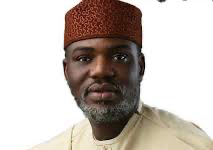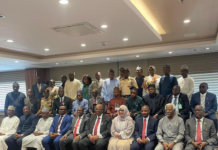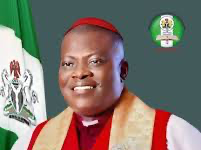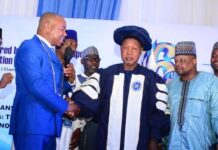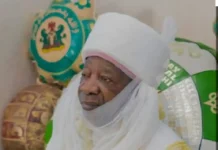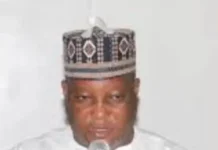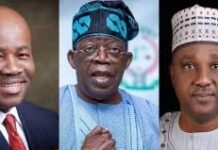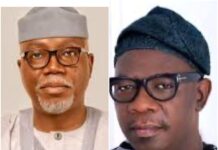Nigerians Kick as Senate Holds Public Hearing on Social Media Bill
POLITICS DIGEST – Stakeholders across different parts of the country on Monday unanimously rejected the controversial Senate bill meant to regulate activities on the social media.
Aggregate opinions at the public hearing organised by the Senate Committee on Judiciary, Human Rights and Legal Matters on the bill titled ‘Protection from Internet Falsehoods, Manipulations and Other Related Matters Bill, 2019 (SB132) was that the sponsor of the bill, Senator Mohammed Sani Musa (APC Niger East), should withdraw the bill which stands to stiffle public opinion and negate principles of fundamental human rights.
This was as the excessive power by the bill given to the Nigerian Police to prosecute offenders was described as, overconcentration, draconian and unacceptable.
While submissions of media organisations and civil society organisations against the bill were expectedly negative, government agencies and departments at the public hearing also faulted the bill while only the Nigerian Army supported the bill.
Leading the positions of media organisations, National President of the Nigerian Union of Journalists (NUJ), Comrade Chris Isiguzo, reaffirmed NUJ’s position that the bill seeks to pidgeonhole Nigerians from freely ecpressing themselves.
The NUJ said the bill if passed will erode the right to expression, restrict freedom of speech and imperil democracy.
Isiguzo said: “The bill is an unnecessary proliferation of existing laws that has substantially dealt with misinformation. If there is the need to look at the existing laws, we should go ahead to do that than to proliferate them.
“People should not be stopped from expressing themselves. Government can regulate platforms but regulating end users is against the spirit and letters of the constitution”.
Canvassing the position of the International Press Centre, its Executive Director, Lanre Arogundade, while opposing the bill reminded the sponsor that Nigeria is signatory to many international conventions that recognises rights and freedom of speech.
The Daar Communications Plc, owners of AIT, categorically stated that the bill should either be withdrawn by its sponsor or be quashed at further deliberation in the Senate.
Chairman of the media organisation, Raymond Dokpesi Jnr, said the bill lacks the merit of being in the public interest as it attempts to take away the right to fair hearing and give monopoly to governent apparatus to determine what is right or wrong.
Read Also:
He said: “The bill attempts to reintroduce the law of sedition into Nigeria’s legal system. I do not see the difference between sedition and the bill. The bill should be withdrawn,” he stated. Civil society organisations were unanimous in condemning the bill in its entirety as the Policy and Legal Advocacy Centre (PLAC), a sponsor of the public hearing, discountenanced the bill on the account that it infringes on human right.
Clement Nwankwo, Executive Director, PLAC, said the bill is unnecessary “because a lot of people are worried about the use of social media.
“The bill has huge ramifications that could threaten the fabric of Nigerian’s democracy and the achievement of its outlined fundamental objectives that are aided by the deployment of technology such as social media tools which facitates citizen participation and engagement with their elected representatives,” Nwankwo added.
The Amnesty International (AI) said the bill is a threat to democracy while stresssng that there are cases of repression against journalists and media practitioners in the country.
The body said “the restriction placed by the bill is not reasonably justifiable. It is very restrictive, not objective and prone to abuse”.
Shamsudeen Yuduf on behalf of the Centre for Democracy and Development (CDD) said the bill should not be passed as it among others does not provide for standard investigation mechanism.
He picked hole in the bill for capable on infriging on econonic rights of Nigerian youths who are predominant on the internet.
“Shutting down access to internet is usafe and is a great hindrance to economic growth,” he said. YIAGA Africa said the bill is going to be legislative overkill in view of existing laws guiding misinformation.
Stating YIAGA’s pisition, Samson Itodo, Executive Director, said the bill “violates fundamental human rights of the citizens especially section 17(1) of the 1999 constitution, contravenes existing international statutes to which Nigeria is a signatory and that sufficient legislations currently exists to cater for protection from falsehood and manipulatuons.
Leading the pack of government agencies that condemned the bill was the Nigerian Communications Commission (NCC) which said the bill could lead to abuse of human rights.
The Executive Vice Chairman, NCC, Prof. Umar Dambatta, said the provision of the bill will be difgicult to implement. He faulted the bill for giving much power to the Nigerian Police while submitting that some provisions of the bill are already covered by extant laws.
“The bill has general drafting anormalies. In our submission, the NCC suggests that the National Assembly may need a complete re- draft of the bill”.
The Nigerian Law Reforms Commission said there should be a balance between interest of the people and that of government.
The acting Director General, Prof. Jumai Audi, said there is need to check excessive powers given the Police by the bill which she described as draconian. She also pointed out grammatical errors in the bill.
The Broadcasting Organisation of Nigeria (BON) posited that the bill is “undefined and misleading”. It added that it is unnecessary as extant laws already deal with issues raised by the bill.








